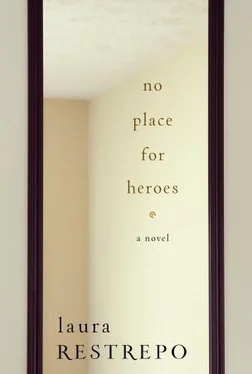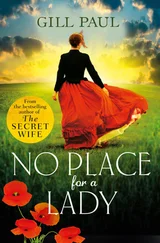Soon after that, they stopped seeing each other. Just like that, at the entrance of a theater. In a sudden crossfire of words, they went from the clouds to the mud, from eternal love to nothing, rien de rien, c’est fini , see you later, game’s over. He admitted that he had another love, a relationship that was more than five years old, and she told him that she had left behind a boyfriend in Madrid. There was nothing they could do, no breaking the impasse, neither of them willing to break it off with the former party, so there were months, when they didn’t see each other, of absence and anxious agony. Of stabbing aches in the gut, in the heart, in the head, the immeasurable punishment of breaking up, that small death.

THERE’S AN ALLEYWAY at the back of the well-known Mercado del Progreso on Primera Junta, in the Caballito section. Called Pasaje Coronda, it is the drop-off point for trucks bringing food to the market, and could well be one of the least memorable spots in Buenos Aires.
Number 121 in that alleyway is a type of small old convent where several families lived. A big and precarious one-story building, it is train-like, with a narrow façade and nine separate rooms lined up in the back, all facing a common hallway. At one time, Forcás rented the first of those rooms, the only one with a window facing the street, and his brother, Miche, the adjacent one.
Forcás’s room had a door out to a small patio, a half bath, and a sort of corner kitchen. And since Miche’s was only a room, Forcás had given him a key to his side, so he would use it whenever he needed to. And, of course, Miche needed to, coming in and out at all hours of the day and night.
“Do you want to come with me to Coronda, Mateo, to see the place?” Lorenza asked, and Mateo, who was in a better mood since talking to the daughter of el negro Robles, allowed himself to be convinced after a period of haggling.
“What an ugly spot,” he said after they arrived, and his mother took it as an offense.
“Ugly? I wouldn’t say that. Really, you think it’s ugly? Well, I was happy here.”
“It’s still pretty ugly.” Mateo patted her on the back, to make up for his comment.
“I always found it charming, from the day I arrived here with my suitcase to come live with Forcás. Before that, I had never come. I had no idea where in the city his hideout cave was.”
“But didn’t we just leave it that the two of you were breaking up, never to see each other again?”
“About a month and a half after that, we made up. He had looked me up to tell me that he had broken it off with his old love. I broke it off with mine with a long phone call from a public telephone, and a few days later we had already decided to live together. I said goodbye to Sandrita and the apartment on Deán Funes, packed my suitcase, and showed up knocking at his door, 121. It was the same exact door you see now, metal, with this same oxidized mustard color. I rang the bell. Very emotional as you can imagine, startled, really, not really knowing where I was and what I was doing.”
Her worries vanished as soon as Forcás opened the door. He was in an undershirt and sandals and was drinking a maté, and she liked that. He looked like a neighborhood kid. He didn’t smell like sheep’s wool, nor like Drakkar Noir, but like that instead, an everyday kid, wearing sandals and drinking a maté in his neighborhood. It was the first time that she had seen him like that. Before, she had always seen him in some role, as a resistance fighter, or as director, or the handsome one, or an Argentinean, or a boyfriend. But now it was just the face of an ordinary young man, who smiled as he opened the door of an ordinary house in an ordinary barrio, who took her suitcase and asked her to come in. She sensed that the moment was important. It was something like landing in a normal life, or as much of a normal life as could have existed amid the general horror. It was also like stepping into the real Buenos Aires. For Aurelia, Coronda was the doorway into the city.
“It’s not the same being in a city as stepping into it, Mateo. For example, you and I, in our hotel, we’re in Buenos Aires, but we are not. At the apartment on Deán Funes I was in Buenos Aires, but not fully. But in Coronda it was different; Coronda was the real Buenos Aires, the city within the city, the heart. And it’s not really a metaphor. Caballito is in the middle of Buenos Aires and Coronda is in the heart of Caballito. Or who knows, that’s what they say. What is definite is that Coronda was my citizenship papers; as soon as I stepped into that house, I stopped being a foreigner.”
Forcás introduced her to his two cats, Abra and Cadabra, a pair of ashen little things, barely alive, blade thin from hunger. A few days prior, he had found them in the vacant lot across from the convent, among the garbage from the market, where someone had abandoned them in a sack. They were half dead when he took them in.
“But they were already fine when you arrived?” Mateo noted with a touch of anxiety. He couldn’t stand the thought of an animal suffering.
“They were starting to come back, thanks to some mineral water that Forcás fed them with a syringe. After he introduced me to his cats, he showed me the house.”
“From now on it’s our house,” Forcas had told her. But he didn’t tell her that it was also his brother Miche’s, and his girlfriend Azucena’s. That part Aurelia would find out that night.
The entrance to the room was through the small patio, which had a few potted plants, and Forcás showed her the washbasin and a rope ladder that led to the roof and that, he explained with hand signals, he had put there as a means of escape should it become necessary to do so. They ducked to go under the clothesline and Aurelia was shown the bathroom, a stream of water that came out of a piece of pipe and splashed on the floor, in a space so narrow that, she would find out the next day, on showering you had to watch that your back didn’t graze the cold wall.
Aurelia wasn’t exactly sure why, but she had the sensation of coming upon a cozy place. Or she did know why, the reason was clear as day: this was a real house, with potted plants and cats and clothes hanging on the line, something unexpected for someone like Forcás, who lived on the razor’s edge. Before further exploring her new refuge, Aurelia locked herself in the bathroom, to be alone for a minute and think about what was happening to her.
“You didn’t lock yourself in there to think, Lolé, but to pee, to mark your territory. That’s what animals do when they take over a place.”
Forcás later showed her the bedroom and she found it stupendous. There were a few books, those that could pass as innocent, Dickens, Kipling, and Stevenson, and a Ken Brown sound system, and a bunch of rock nacional records. The lone bed was simple, with a blanket of black-and-coffee-colored stripes. Forcás told her that it had been hand-knitted by the Aymaras and had been a present from some Bolivian comrades. This is my bed, he said to her, your bed now as well. She sat beside him and laughed, because it was really a narrow bed. A double bed would have been too big, for the room was no larger than thirty square meters. Aside from the bed, there was a table and four chairs, a stove in the corner, and a fridge whose door was held in place by a rope. Stacked against the wall were countless boxes with the name Yiwu YaChina on them. It would be much better without the boxes, she thought, but said nothing.
“Yiyu China?” Mateo asked.
“Yiwu YaChina. A wholesale Chinese jewelry. It was Forcás’s minute. To the neighbors, he was the wholesaler for Yiwu YaChina.”
Читать дальше













